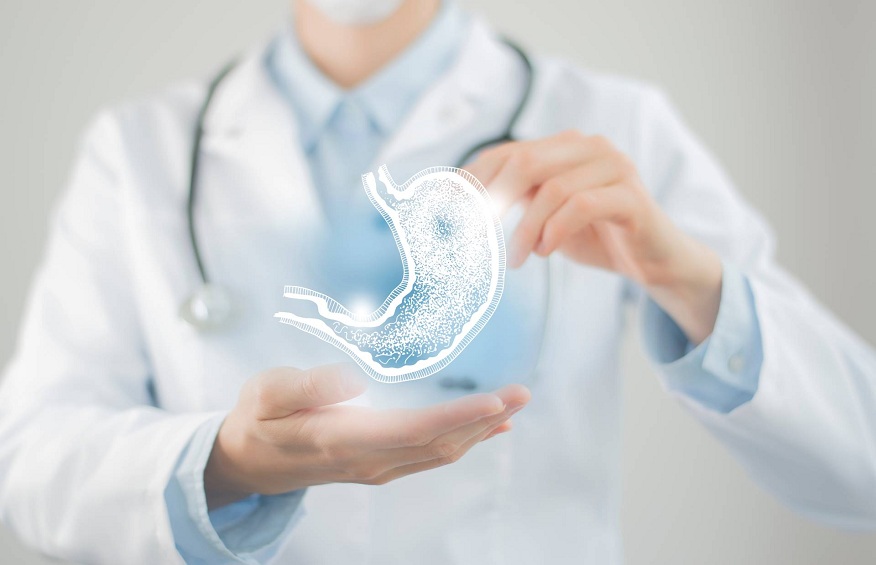An ounce of prevention is worth a pound of cure”. After any surgery, the body is in a vulnerable state demanding utmost care and time to heal properly. Therefore, it is important to take precautions and follow the surgeon’s advice to avoid any negative implications. If you have undergone gastrointestinal surgery in Dallas or Fort Worth or anywhere else, you need to follow the surgeon’s medical advice, post-surgery to see the best results. Apart from the surgeon’s advice there are some other things that need to be taken care of. Continue reading as we have presented the most important aspects that you need to keep in mind and follow diligently after gastrointestinal surgery.

Role of Nutrition in Recovery After Gastrointestinal Surgery
The saying “You can’t run on empty” rings particularly true when it comes to the importance of nutrition after surgery. Numerous factors affect the patient’s journey of recovery after gastrointestinal surgery. Among these, nutrition plays a crucial role in recovery and improves outcomes.
The Enhanced Recovery After Surgery (ERAS) protocols have recognized the significance of nutrition in the postoperative period, and it emphasizes the need for advising nutrition plans according to the specific needs of the patients. The recovery process of a patient includes maintaining the patient’s nutritional status, reducing the risk of complications, supporting wound healing, and promoting proper gastrointestinal function.
Some general tips usually recommended in a post-gastrointestinal surgical diet include:
- Eating small, frequent meals throughout the day instead of large meals
- Avoiding foods that are high in fat, sugar, or fiber, as they can be difficult to digest
- Opting for lean proteins, as they can help promote healing and tissue repair
- Drinking plenty of fluids to stay hydrated.
It is also a good idea to consult with a registered dietitian specializing in gastrointestinal surgery recovery. They can prepare a personalized nutrition plan to meet the needs of your body.
Post-Operative Care for Gastrointestinal Surgery
Post-operative care for gastrointestinal surgery involves various factors, including pain management, nutrition, wound care, and medication management. Here are some common aspects of post-operative care for gastrointestinal surgery:
- Pain Management: Pain after surgery can be managed using medications or non-pharmacological interventions such as relaxation techniques, music, or heat therapy.
- Nutrition: As mentioned earlier, nutrition is a vital aspect of post-operative care. Sometimes, patients may be given enteral or parenteral nutrition to consume solid foods easily.
- Wound Care: Proper wound care is essential to prevent infection near the incision and promote healing. Healthcare professionals will instruct patients on how to care for their surgical incisions and the signs and symptoms to watch out for.
- Medication Management: To reduce or avoid the complications like blood clots, and infection, patients may be given medications.
- Monitoring: Patients will be closely monitored after surgery to ensure they are recovering as expected. This may involve regular vital sign checks and blood tests.
- Early Mobilization: Early mobilization after surgery helps to prevent complications such as blood clots and pneumonia. Patients are encouraged by surgeons to keep their legs moving or walk and climb stairs after the surgery but they discourage heavy activities or bending.
Whether you are living in New York or DFW, post a gastrointestinal surgery, you need to follow these instructions to avoid complications.
Importance of Protein and Hydration
Protein and hydration are crucial elements of a healthy post-surgical diet. Proteins help promote tissue repair, while fluids help to increase blood volume and promote healing.
Foods that are high in protein are:
- Low in fat meats, poultry, and fish
- Eggs
- Dairy foods like milk, greek yogurt, and cheese
- Beans
- Legumes and pulses such as peas, chickpeas
- Soya and soya products
- Nuts
- Sausages
- Bacon
- Salami
- Black pudding
- Breaded or battered fish
After surgery, patients may experience dehydration due to fluid loss during the procedure and reduced fluid intake. Water is required by the body for maintaining fluid balance, regulating body temperature, transporting nutrients and oxygen to the cells, and avoiding the increase in the risk of complications in the body Therefore, hydration is very important for healthy recovery after gastrointestinal surgery.
Role of a Qualified Surgeon
A qualified surgeon plays a critical role in post-gastrointestinal surgery care. They are responsible for providing proper preoperative evaluation, surgical planning, and post-operative care instructions to ensure a safe and successful outcome. Post-operative care includes monitoring the patient’s vital signs, managing pain levels, and addressing any complications or issues that may arise. A skilled surgeon can also recommend a personalized nutritional plan that prioritizes protein intake and hydration to promote proper healing and recovery. Considering the postoperative complications, it is important to choose a qualified surgeon only for the best possible outcomes. There are specialized bariatric surgical centers in DFW for gastrointestinal surgery that provide personalized care plans for post-gastrointestinal surgery patients with an experienced staff.
Conclusion
It is important to stay hydrated and nourished and get enough rest, so that you can shorten the recovery journey. If you’re feeling lost or unsure, don’t hesitate to reach out to the gastrointestinal surgery experts in Fort Worth or Dallas, Texas, or anywhere you live. A trusted healthcare service provider can be your trusty co-pilot on the road to better health after gastrointestinal surgery.





Leave a Reply
You must be logged in to post a comment.